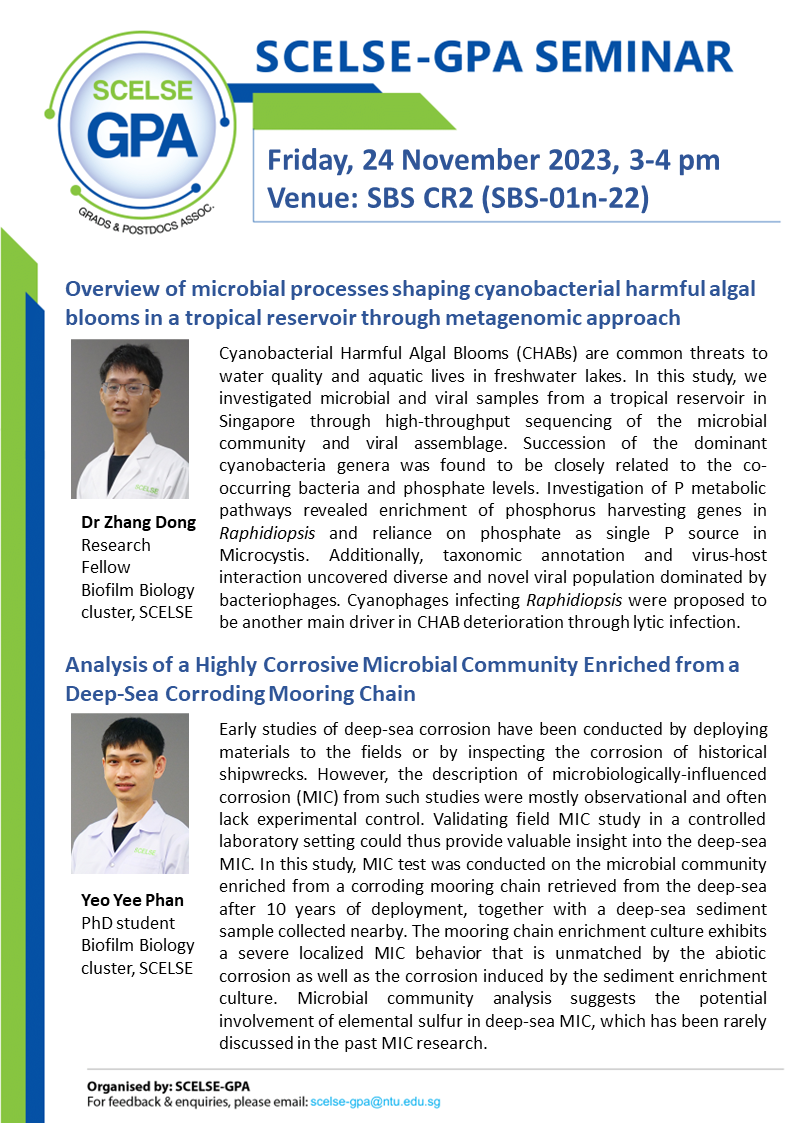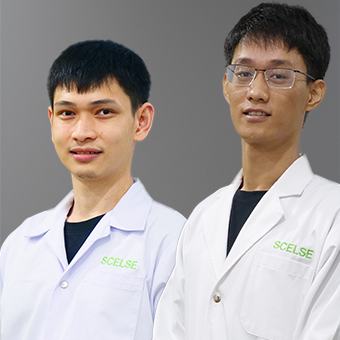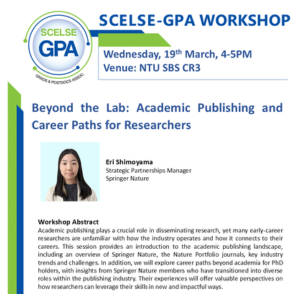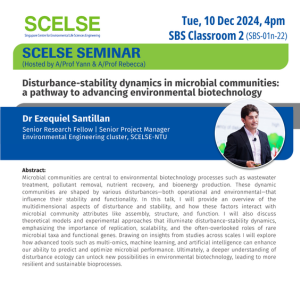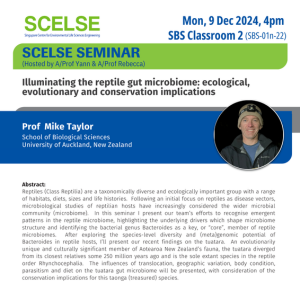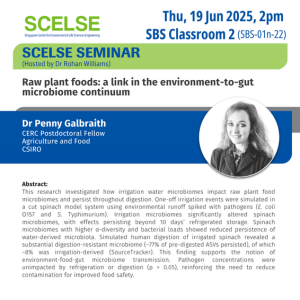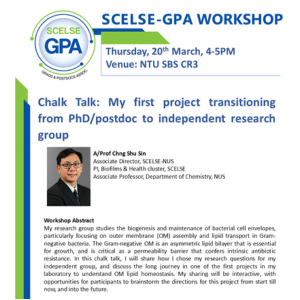SCELSE-Graduates & Postdocs Seminar Series: Microbial communities associated with critical environmental issues.
Date: Friday, 24 Nov 2023
Time: 3 pm – 4 pm
Venue: SBS CR2 (SBS-01n-22)
(GPA Seminars are only open to SCELSE researchers. No registration is required. RAs and interns are also welcome to join. Refreshments will be provided.)
TITLE: Overview of microbial processes shaping cyanobacterial harmful algal blooms in a tropical reservoir through metagenomic approach
SPEAKER: Dr Zhang Dong | Research Fellow | Biofilm Biology cluster, SCELSE
Abstract:
Cyanobacterial Harmful Algal Blooms (CHABs) are common threats to water quality and aquatic lives in freshwater lakes. In this study, we investigated microbial and viral samples from a tropical reservoir in Singapore through high-throughput sequencing of the microbial community and viral assemblage. Succession of the dominant cyanobacteria genera was found to be closely related to the co-occurring bacteria and phosphate levels. Investigation of P metabolic pathways revealed enrichment of phosphorus harvesting genes in Raphidiopsis and reliance on phosphate as single P source in Microcystis. Additionally, taxonomic annotation and virus-host interaction uncovered diverse and novel viral population dominated by bacteriophages. Cyanophages infecting Raphidiopsis were proposed to be another main driver in CHAB deterioration through lytic infection.
———————-
TITLE: Analysis of a Highly Corrosive Microbial Community Enriched from a Deep-Sea Corroding Mooring Chain
SPEAKER: Yeo Yee Phan | PhD student | Biofilm Biology cluster, SCELSE
Abstract:
Early studies of deep-sea corrosion have been conducted by deploying materials to the fields or by inspecting the corrosion of historical shipwrecks. However, the description of microbiologically-influenced corrosion (MIC) from such studies were mostlv observational and often lack experimental control. Validating field MIC study in a controlled laboratory setting could thus provide valuable insight into the deep-sea MIC. In this study, MIC test was conducted on the microbial community enriched from a corroding mooring chain retrieved from the deep-sea after 10 years of deployment, together with a deep-sea sediment sample collected nearby. The mooring chain enrichment culture exhibits a severe localized MIC behavior that is unmatched b the abiotic corrosion as well as the corrosion induced by the sediment enrichment culture. Microbial community analysis suggests the potential involvement of elemental sulfur in deep-sea MIC, which has been rarely discussed in the past MIC research.
